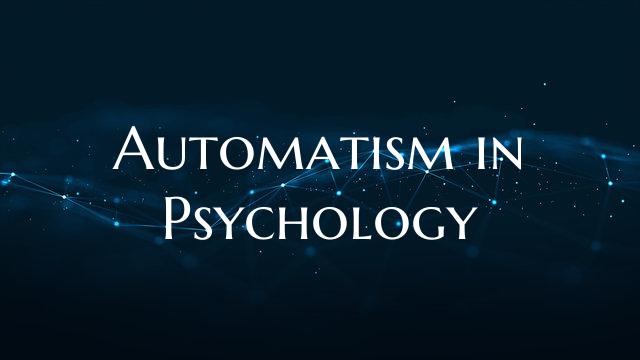Automatism in Psychology
Automatism in Psychology: Understanding the Unconscious Mind
Automatism is a fascinating concept in psychology that delves into the realm of the unconscious mind and automatic behaviors. In simple terms, automatism refers to the performance of actions without conscious thought or intention. These actions can range from simple reflexes to more complex behaviors, all of which are executed without the individual’s active involvement.
One of the key aspects of automatism is its connection to the unconscious mind. Psychologists believe that many of our actions and behaviors are driven by unconscious processes that operate beneath the surface of our awareness. These automatic behaviors can be influenced by past experiences, habits, and even external stimuli, shaping our responses in various situations.
Understanding automatism can provide valuable insights into human behavior and cognition. By studying automatic responses and behaviors, psychologists can gain a deeper understanding of how the mind processes information, makes decisions, and interacts with the environment. This knowledge can be applied in various fields, such as cognitive psychology, neuroscience, and even clinical practice.
Moreover, automatism plays a significant role in shaping our everyday lives. From the routine tasks we perform without thinking, such as driving a familiar route or tying shoelaces, to the more complex behaviors like language acquisition and social interactions, automatism influences a wide array of human activities. By unraveling the mechanisms behind automatism, researchers can shed light on the intricacies of human cognition and behavior.
In conclusion, automatism in psychology offers a compelling perspective on the workings of the human mind. By exploring the unconscious processes that drive automatic behaviors, psychologists can uncover valuable insights into our cognitive functioning and behavior. As research in this field advances, our understanding of automatism and its implications for human behavior is likely to expand, opening new avenues for exploration and discovery in the realm of psychology.

